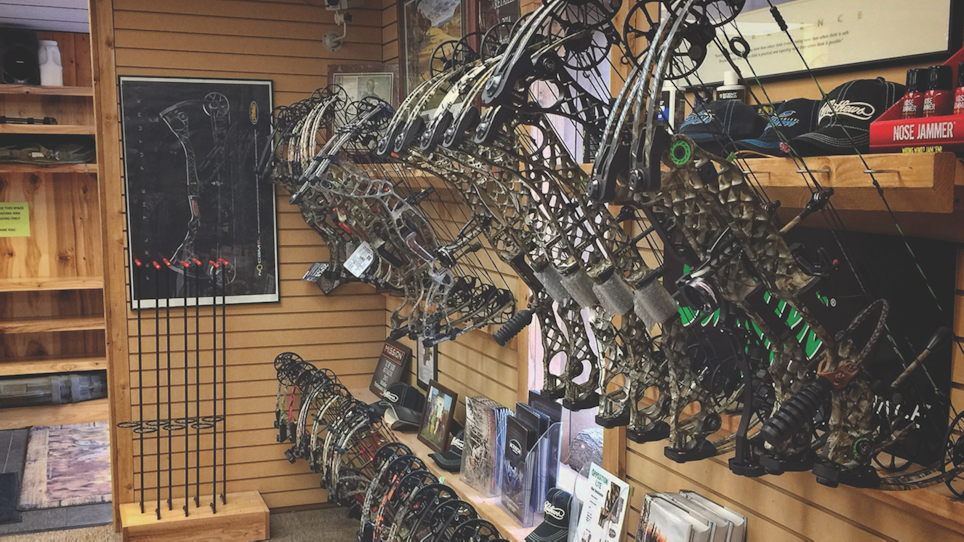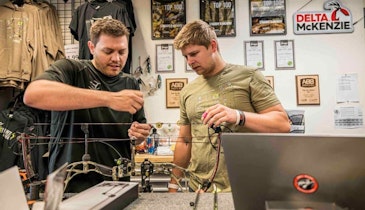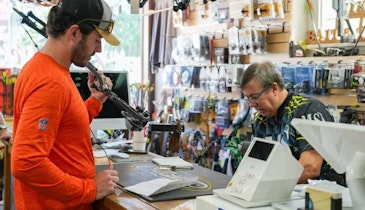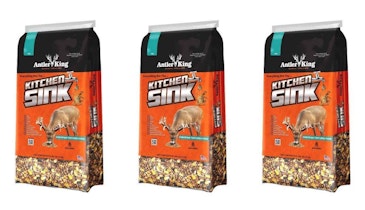In case you haven’t noticed, there is a box store on every corner. Box stores often sell archery products cheaper than pro shops, have more products in stock and have beautiful stores that are a tourist attraction, not just a retail outlet. When you put all of these factors together, it can be tough for a mom-and-pop retailer to compete.
But John Schaffer from Schaffer Performance Archery in Bursville, Minnesota, takes a different approach from most pro shops. Schaffer has a thriving retail store and manufacturing company that makes bow sights and rests. Being a manufacturer and a retailer has given Schaffer a unique perspective on how to operate in today’s very competitive archery market.
Take Advantage of Volume Discounts
One mistake Schaffer believes many retailers make is stocking too many products in one category. Take broadheads, for instance. Many retailers stock dozens of different types of broadheads because they want to have a little bit of everything. That way, regardless of what a customer wants, the retailer has it in stock. The problem with this strategy is many retailers buy three or four packs of each type of broadhead from a distributor. As a result, they pay top dollar for the product and regularly have to reorder. This practice results in expensive shipping costs, which further eat away at profit margins.
“We want to get the best deal we can on any products we sell so we can maximize our margins,” said Schaffer. “To do that, I order large quantities of products a few times a year instead of two or three packs every week. We don’t carry an endless selection of products; we carry products we believe in. We order very large quantities of the products we carry and sell many of them. By ordering a large quantity of a few items rather than a few of many items, we make great margins and minimize the amount of the time we spend on the phone ordering product and paying for shipping.”
Many companies in the archery industry offer quantity breaks. Schaffer takes advantage of the discount. In return, Schaffer and his staff must be salesmen and experts who offer extensive knowledge about the products they carry.
Help Customers Make Choices
“Retailers need to remember why a person enters a pro shop,” Schaffer said. “They do it because they want quality advice. If a person wants a pack of broadheads, they can go to a box store and buy whatever. When they come into our store, we steer them toward one of the products we are proud to carry, even if they start by asking for a different product line. Most of the time after we explain the benefits of the products we carry, they walk out of the store having purchased what we believe in and what we stock large quantities of. Many retailers are afraid if they don’t stock one of everything they will miss out on a sale. We rarely miss out on sales because we give our customers many reasons to switch to the product lines we carry.

“One powerful tool we use is pictures. I can simply tell a customer, ‘Look at all the pictures of the bucks on the wall over there. Most of those animals were taken with this broadhead or that arrow.’ That visual is a powerful selling tool. When people visit a pro shop, they want solid sound advice. They don’t want a person who says, ‘Go pick out XYZ product out of the 100 options on the wall over there.’”
Only offering a few product lines in a certain category helps Schaffer maximize his profit margins and makes selling products easier.
“When a person walks into our store, the last thing I want is for them to get confused by the different options and leave the store without making a purchase,” Schaffer said. “I have seen that happen. If a guy goes to look at sights and there are too many options, he might get overwhelmed by all the options and stick with what he already has on his bow. With a small selection of great sights, we can help him make a great choice. The same can be said for all products. Some pro shops carry ten different bow lines. We used to carry five lines; we now carry seven. We like to keep the sales process simple.”
Sell What You Stock
Many retailers believe suggesting one brand over another or having an opinion about product lines is going to scare away customers. Schaffer said that belief couldn’t be further from the truth.
“Customers don’t really want order takers,” he explained. “If all they wanted was an order taker, they could buy their gear at a box store or online. They come into a pro shop because they want expert advice. There is nothing more powerful than the guidance the guy behind the counter is going to give the consumer. A guy or gal can come in asking for one thing and, if a pro shop is reputable, knows what they are talking about and believes in what they are selling, that customer will leave the store with a quality product. It might not have been the product they came into the store looking for, but it’s one they’re happy leaving with because the guy behind the counter explained why the product he sold is worth using.
“Three words we use in my shop all the time are: buy this instead. We are not baiting and switching, we are selling what we stock, what we make good money on and products that work. If the product we are trying to sell them isn’t any good, we will lose our credibility quickly. In order for this to work, we must sell great products that consumers will be happy using.”
One important thing Schaffer said in the above paragraph is he only sells great products that he can make a great margin on. To do that, you need to work with the best companies in the industry, the ones that make great products and offer great margins for their retailers.
“I seek out companies that make high-quality products that I can sell and make money on. If I can’t make good money on something, I don’t sell it in my store; it is that simple. One of the reasons I buy large quantities of the products I carry is so I can get extremely good prices. It is hard to make a good living, take care of my employees and keep up with the overhead of owning a brick-and-mortar store if I am making 20 or 30 percent on the products I sell.”
Schaffer’s business model is simple: Create great relationships with your vendors, stock large quantities of a few items and sell what you stock. By doing this, the vendor is happy because he is selling a lot of product and the retailer is happy because the ordering and selling process is simple, effective and profitable. Although this entire process is simple, it requires one thing: a salesman. Without a good salesman behind the counter, the system won’t work.
“I train all of my employees personally and teach them the ins and outs of the product lines we carry,” Schaffer said. “I don’t want order takers in my store. I want employees who are friendly, knowledgeable and professional. That’s what separates us from the box stores or the online retailer.”
Choice Paralysis

There’s quite a bit of research to back up Schaffer’s assertion that too many choices can be overwhelming for shoppers. In one study, shoppers sampled gourmet jam at an upscale food store. Some shoppers were shown a display with 24 varieties of jam; some saw only six options. The study found that those shoppers who could choose from 24 varieties were only one-tenth as likely to purchase a jar of jam as the shoppers who had fewer choices.
Further studies have found that people given more choices are not only less likely to ultimately make a decision, but they were also more likely to be dissatisfied with their choice if they did make one. Researchers believe that too many choices simply overwhelm a person’s ability to make comparisons, leading to choice paralysis and buyer’s remorse.
Customers may say they like having lots of choices and a large selection of products from which to choose, but in reality they only want the right products.
Surviving The Box Stores
Schaffer was quick to point out that he is surrounded by large box stores and he thrives in that retail environment.
“Box stores expose many people to the sport of archery, and often a consumer who is new to archery will eventually want professional help and show up here. We will help them whether they bought their bow here or not. We will also show them product lines that aren’t available at the box store. That is one thing that separates us from the box store. We often carry high-end products not available at a box store. When consumers come into our store we want them to notice something different about us. Often what they notice is we are archery professionals and we only carry great products. I believe the box stores around me have actually helped my store. I have several box stores within a stone’s throw of my store and we are doing very well.”
It is important to note the Schaffer Performance retail location is a little over 3,000 square feet, yet the store is extremely profitable because of Schaffer’s business model. Just because you don’t have an extremely large store doesn’t mean you can’t be profitable. “I think it makes really good sense for stores with a small amount of space not to stock everything under the sun,” he explained. “Running a business that way can cause a person to go broke. Stocking large quantities of a few great products is a big key to our success.”
Stay Profitable
Schaffer is quick to point out that getting quantity discounts from manufacturers doesn’t require you to go broke. “The difference between a middle-of-the-road price and a great price is often very small. Ordering a dozen of something instead of five or 10 of something can make a world of difference as far as price and margin goes. Ordering large amounts saves a ton of money on shipping cost.”
Being an archery retailer does not mean you have to live in poverty and scrape by. Being a salesman, making sure you make great margins and stocking top-notch products that separate you from the competition is a recipe for success that works for Schaffer Performance Archery and other retailers around the country.
Two Questions to Ask Manufacturers
If you’re only stocking products from a handful of manufacturers, the manufacturers with whom you choose to work become very important to your business. Select the best vendor partners by making sure you ask the following two questions of them:
- What quantity of your product must I buy to get your best pricing?
- How quickly can you fill and ship large orders?
Knowing the answers to those questions can help you make smarter choices about the manufacturers represented on your shelves.
From the manufacturers: Schaffer Performance Archery
 John Schaffer also manufactures bow sights and rests. His sight, the Opposition Air, is one of the lightest bow sights on the market. His bow rest, the Opposition Lite, is extremely popular in his store and with many retailers around the country because it can’t be purchased at box stores.
John Schaffer also manufactures bow sights and rests. His sight, the Opposition Air, is one of the lightest bow sights on the market. His bow rest, the Opposition Lite, is extremely popular in his store and with many retailers around the country because it can’t be purchased at box stores.
“We protect our dealers,” Schaffer said. “When someone comes in looking for a new sight or rest, the retailer can sell them a quality product that is not available at a box store, which gives the retailer an edge over the competition. We also offer our retailers great margins.”
Are you looking for a product line that is different from the cookie cutter products available at the box store? Check out www.schafferperformancearchery.com.
This article was originally published in the January/February 2016 issue of Archery Business magazine.






